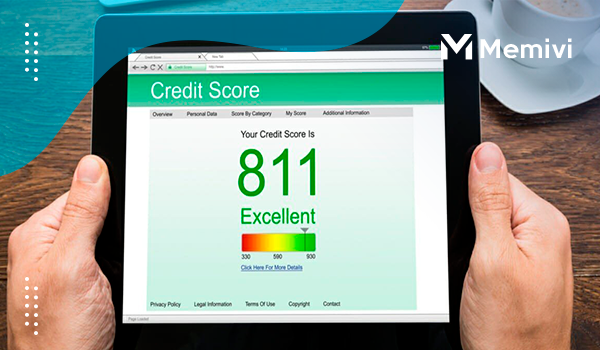
A credit history is important when it comes to borrowing money from a bank or other financial institution. A credit history can also be crucial when it comes to getting a loan or determining a person’s credit score. How a person handles their finances is important in determining who gets approved for a loan, so banks are more likely to give out a loan to someone who has a good credit history. It is important to keep your credit history up to date, so that you do not have to worry about your credit score. Keep track of your credit history by staying on top of your bills and paying them on time.
Furthermore, credit history is a record of how a person has handled their debt (credit) in the past. The FICO score, which is the most widely used credit score, is an important component of credit history. Paying bills on time and making timely payments on credit accounts is a key component of good credit history. This is what can help people build a good credit history and have a good credit score. Therefore, credit history is important.
It is imperative that you have good credit history to be able to borrow money in the future. If you have bad credit, you might have to pay higher interest rates and higher monthly payments. You should also make sure that you keep your credit history clean.
The best way to do this is to not use your credit card for emergency spending. It is important that you pay off your balance in full every month. If you do not have a credit history, you might not be able to borrow money from a bank or company.
What is a credit report?
A credit report is your credit history. It is a record of how you’ve used your credit to buy things like a car or a house. You get them from businesses like the bank, credit card company, or your cell phone company. They also come from other companies and organizations, like a utility company or a social security office.
Your credit report gives you information about your credit history, such as any credit accounts you have, the credit card balances, and the dates your accounts were open. It also tells you if you’re behind on payments, have an open collection account, or have any judgments against you.
If you’re applying for a loan, the three credit bureaus will pull your credit report to make sure you’re eligible. The credit bureaus also provide your credit report to other businesses, like cell phone companies, insurance companies, and mortgage companies.
What is a credit rating?
Credit ratings are a measure of a person’s credibility, trustworthiness and ability to repay their debt. They are also a measure of the risk a lender takes when lending money to a person, company or country.
A credit rating is a score that is calculated by the three major credit bureaus, Experian, Equifax, and TransUnion. It is also calculated by other credit bureaus, such as ChexSystems, and is based on your credit history. It is used as a guide to help you determine how risky it is to lend you money. The information that is used in calculating your credit rating is not just the information that you provide on your credit application. It is a compilation of all of your credit history, and it is used by a company to determine how risky you are to lend you money.
A credit rating is a three-digit number that represents the likelihood that a person will pay their credit obligations as agreed, on time, and in full. Credit ratings are typically assigned by a credit-reporting agency and can range from 000 to 900. A credit rating of “0” means that the person has no credit history, meaning that the person’s credit standing is unknown or disputed.
How to establish a good credit?
A lot of people want to know how to establish a good credit.
What are the first steps?
How do you establish a good credit score?
There’s no one thing that you should do that automatically creates a good credit score, but one of the first things you should do is to establish a good credit history. This blog will teach you how to establish a good credit in your early years and give you some ideas on how to make your credit score even better.
- Get a secured credit card
Secured credit cards are a great way to establish a good credit history. With a secured credit card, you’ll have a low limit revolving line of credit, which can help you build your credit history and increase your credit score. The card issuer will hold the security deposit in a bank account, which is usually equal to the credit limit you are approved for and usually between $200 and $2,000.
- Try to apply for a secured loan
When you want to establish a good credit history, it is important to set a good precedent. Another way to do this is by applying for a secured loan. This will show lenders that you are serious about repaying your loan and that you have a good credit history. A secured loan is one where you put your own property as collateral. There are many secured loans, including mortgages, student loans, and business loans. The best way to find a loan is by using a loan comparison tool because it will match you up with the best loan for your needs.
- Get a co-signer
A co-signer is someone who will provide you with the money for a loan for a specific purpose, like a car, house, or other big purchase. They will agree to be responsible for any repayment of the loan, as well as any applicable interest or fees.
You can ask for a co-signer to help build your credit history, but be careful not to go overboard and ask too many people. Make sure that the co-signer is someone you trust, someone who will be reliable and willing to pay your debts.
- Be organized with your finances
The credit history is the history of how you have dealt with your finances. The longer you have a good history in terms of your credit score, the better it will be for you in the future. To establish a good credit history, you need to be organized with your finances. There are many ways you can be organized with your finances, and this includes being organized with your finances with a budget.
- Sign up to auto-payments
Building up a good credit history has been proven to be essential in becoming and staying successful in life. If you want to establish a good credit history, you’ll need to start with auto-payments.
This means that every month, you will automatically be charged the amount that you set up. Your bank account will then be charged the amount that you set up. If you have a recurring payment set up, this is the same as making a payment in full every month.
- Talk to a credit counselor
A credit counselor can help you set up a budget and establish a good credit history. They will also help you prevent your credit score from being reduced. If you’re having trouble paying your bills, don’t be afraid to talk to a credit counselor. They can help you set up a budget, which will help you avoid negative interest rates, late payments, and high credit card interest rates. They will also help you establish creditworthiness, which will give you a better chance of getting a loan in the future.
- Pay bills on time
By paying bills on time, you are proving to the company or institution that you can responsibly handle the finances and keep up the payments. This will in turn lead to a good credit history, which will help you in the long run. It is recommended that you pay your bills at least two weeks before the due date. This will give you time to make arrangements if you cannot make the payment. The best way to pay bills on time is to automate it.
Final thoughts

Learn all the key components of a credit report, how they work, and how to improve your credit report. Follow the advice in this post and you’ll be able to improve your credit report and get the financing you need to live your best, fullest life.



 U.S. tariffs: Government of Canada announces next steps in its response plan <p class='sec-title' style='line-height: normal; font-weight: normal;font-size: 16px !important; text-align: left;margin-top: 8px;margin-bottom: 0px !important;'> The Government of Canada is taking decisive measures in response to the unjustified U.S. tariffs that have affected trade and economy. </p>
U.S. tariffs: Government of Canada announces next steps in its response plan <p class='sec-title' style='line-height: normal; font-weight: normal;font-size: 16px !important; text-align: left;margin-top: 8px;margin-bottom: 0px !important;'> The Government of Canada is taking decisive measures in response to the unjustified U.S. tariffs that have affected trade and economy. </p>  Canada Tariff: Trump confirms 25% tariff for the country <p class='sec-title' style='line-height: normal; font-weight: normal;font-size: 16px !important; text-align: left;margin-top: 8px;margin-bottom: 0px !important;'> Canada tariff policies significantly influence global commerce and economic trends. Understanding these tariffs is essential for businesses and policymakers alike. </p>
Canada Tariff: Trump confirms 25% tariff for the country <p class='sec-title' style='line-height: normal; font-weight: normal;font-size: 16px !important; text-align: left;margin-top: 8px;margin-bottom: 0px !important;'> Canada tariff policies significantly influence global commerce and economic trends. Understanding these tariffs is essential for businesses and policymakers alike. </p>  What is the Ideal Credit Utilization Ratio? <p class='sec-title' style='line-height: normal; font-weight: normal;font-size: 16px !important; text-align: left;margin-top: 8px;margin-bottom: 0px !important;'> Learn how to use your credit limits to maintain a good score. Unravel the mysteries of the 30% credit limit margin. Read more. </p>
What is the Ideal Credit Utilization Ratio? <p class='sec-title' style='line-height: normal; font-weight: normal;font-size: 16px !important; text-align: left;margin-top: 8px;margin-bottom: 0px !important;'> Learn how to use your credit limits to maintain a good score. Unravel the mysteries of the 30% credit limit margin. Read more. </p>